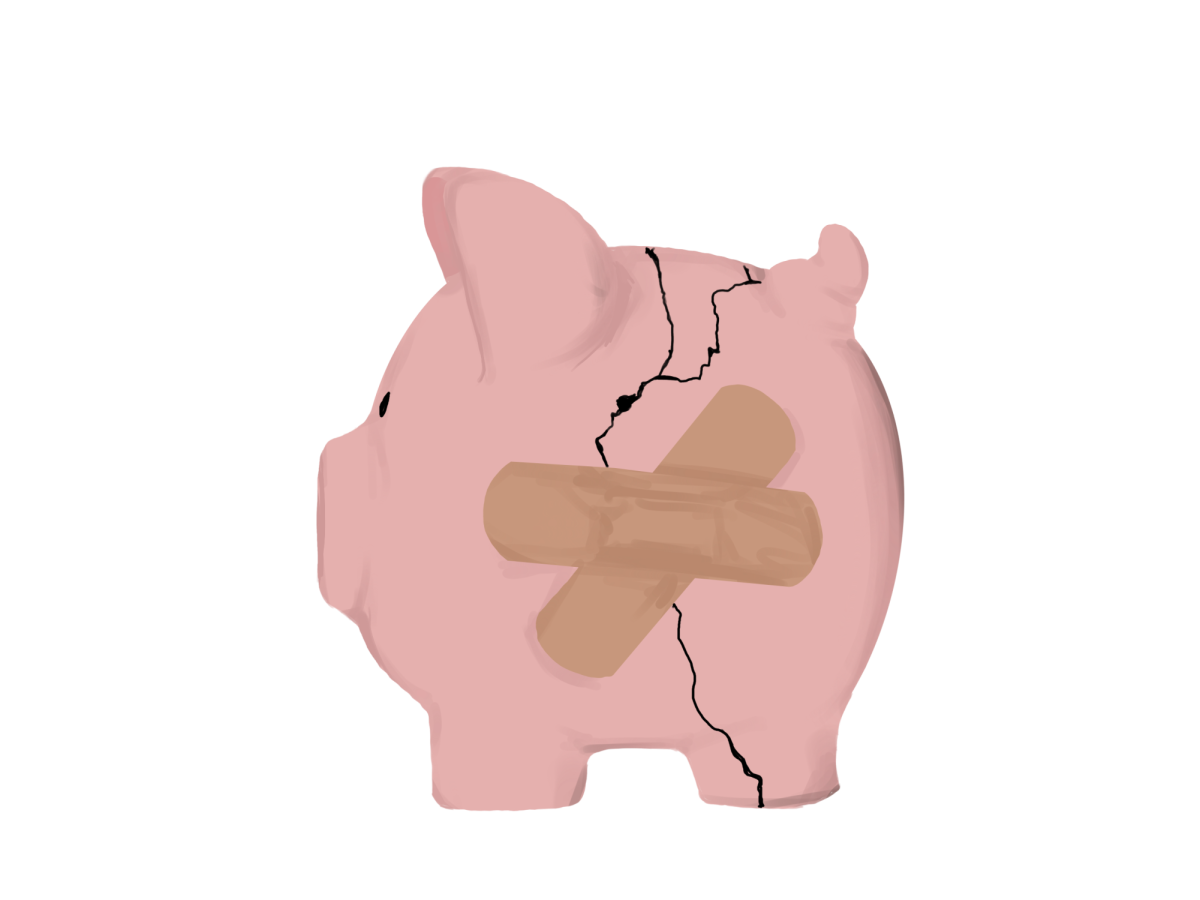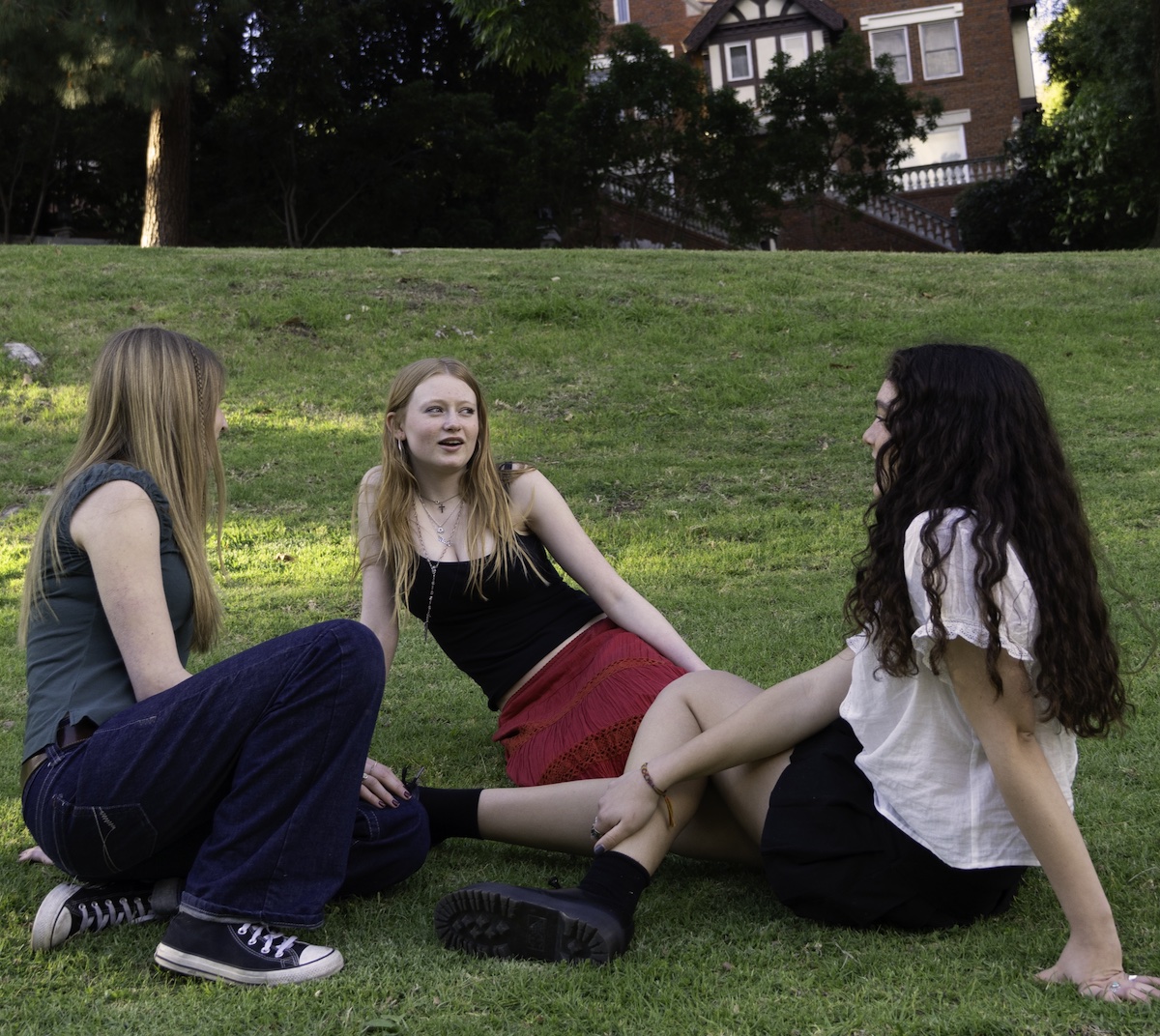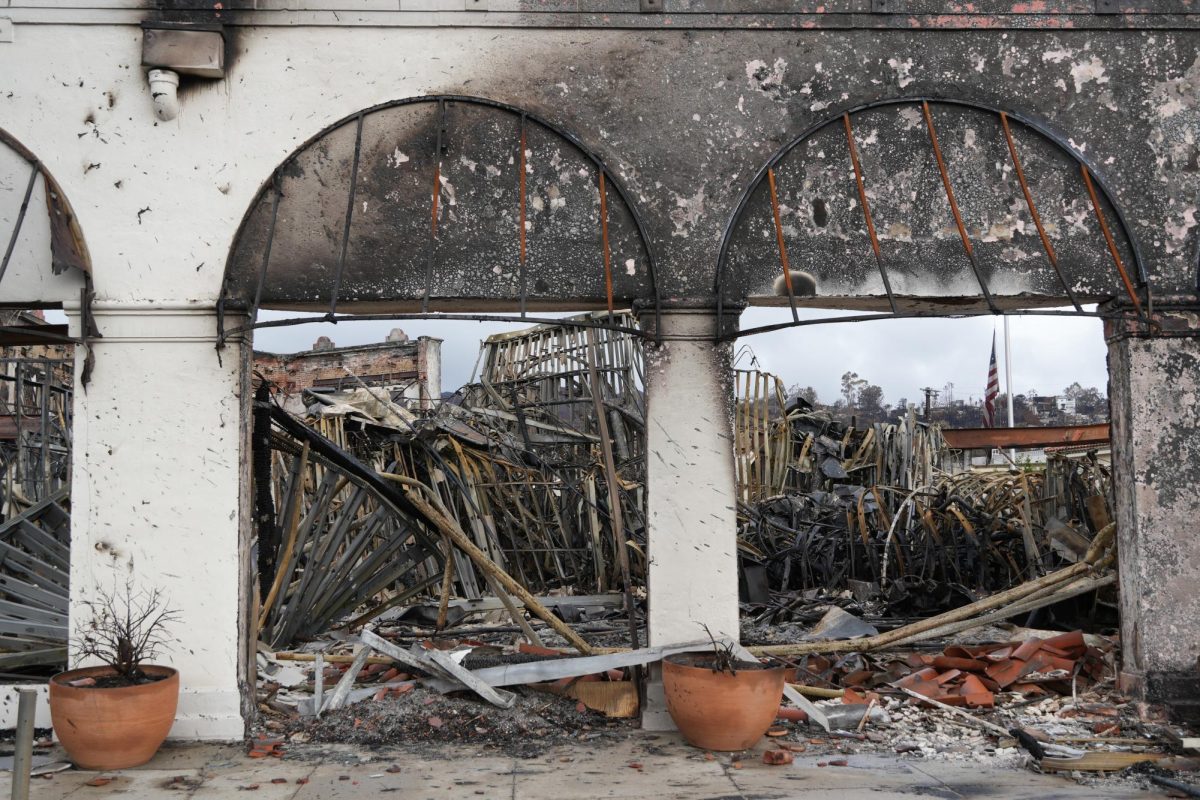In the United States, there is, unsurprisingly, considerable attention paid to presidential elections. The president serves as the most visible representative of the American people at the highest level of government, and the presidential election often holds the public’s attention and takes center stage in national media.
However, there are also many positions that are voted on in midterm elections, such as members of the House of Representatives and 1/4 of the Senate, but voter turnout is much lower in comparison to the presidential race. According to Fairvote, an organization dedicated to improving elections for all, an average of 40% of American voters cast ballots during the midterms, as opposed to an average of 60% during presidential elections. The United States Census Bureau calculated that the 2018 midterms saw 53% of eligible voters taking part in the election—the highest turnout for a midterm in four decades.
There are many reasons for the disparity in voter turnout, as well as low voter turnout in general. There is an increase in interest and news coverage surrounding presidential races that gives those elections a “wow” factor that midterm elections lack.
“The effect of extreme partisan polarization is to make national politics more like an enthralling spectator sport, where we follow along and cheer for the people that interest us,” said debate coach and program head Adam Torson. “With state and local elections, a lot of the positions are nonpartisan and the positions are less covered nationally, so you don’t have that partisan drive in the same way.”
Additionally, according to NPR, some citizens face obstacles during the voter registration process or because polls in their area are inconvenient to access. Recent laws in 18 different states, such as Texas, have made mail-in voting much more difficult through increased ID requirements. These, and other barriers to voting frequently target marginalized people, cause voters to be disproportionately affluent and white in many areas.
There are also millions of Americans who have the ability to vote in midterm elections but choose not to. The reasons behind why people abstain from voting are complicated, but many may not realize the significance of voting in the midterm elections, especially in local elections such as the current mayoral race here in Los Angeles.
“Local elections are key to change. The people we elect to these smaller, local, positions directly shape the city with their policies and decision making, so we must pay the utmost [attention] to who we are electing,” said Helena Hudlin ‘23.
This year’s voting in the mayoral race will take place on November 8th, alongside voting for other positions included in the midterms. The current mayor of Los Angeles, Eric Garcetti, has reached his term limit, which means voters will be choosing a new face for the position.
Whoever replaces Garcetti will be forced to reckon with several important and complex issues such as housing insecurity, homelessness and rising crime rates, many of which have been worsened by COVID and its aftermath. Rates of homelessness particularly are increasing, with the Los Angeles Homeless Services authority reporting 41,290 people experiencing homelessness in the city of Los Angeles in 2020, a 13% increase from 2019. While the next mayor does not have the ability to single handedly end homelessness, the position is still extremely important, and whoever is elected can certainly make positive, tangible changes in our city. The mayor has the authority to hire and fire the heads of different departments, oversee the enforcement of city ordinances and declare local states of emergency alongside many other duties. In these tumultuous, or even unprecedented, times, the next mayor’s positions on key issues and their goals for Los Angeles will have an important role in shaping the future of the city.
“One elected office can’t change the policy direction of the entire city, but if there’s a single office that is the most influential in city government, it’s the mayor,” said Torson.
This mayoral election cycle, there are five top candidates running for the position: Rick Caruso, Joe Buscaino, Kevin de León, Karen Bass and Mike Feuer. A UC Berkeley poll released on April 11th placed Caruso in the lead with 24% of the vote, with Bass following closely behind with 23% of the vote. However, 40% of voters were still unsure of who they would support.
“We know the reach and influence of the mayor from all of the historical accomplishments that have been made in our city’s history, so I know it is possible for a better future. We always have to have hope, and combine that hopefulness with action to make positive change,” Hudlin said.
The information in the profiles here come from the websites of the candidates themselves.
Karen Bass
FACTSHEET
Party: Democratic
Qualifications: US Congresswoman, Previously served six years in the California State Assembly (2004-2010), Chair of the Congressional Black Caucus, Chair of the United States House Foreign Affairs Subcommittee on Africa and Global Health and Global Human Rights
Healthcare agenda:
- Supports universal healthcare
- Believes that all people should have access to healthcare
- Bass has previously voted 40 times against repealing the Patient Protection and Affordable Care Act, also known as Obama Care
Housing agenda:
- Plans to house 15,000 homeless people within her first year of being elected
- Will do this by building new homes using federal and state funding
Sustainability agenda:
- Invest in new technology and renewable resources that can satisfy environmental needs
- Specifically plans on investing in technology that will reduce America’s dependence on international oil
Homelessness agenda:
- Plans to decriminalize homelessness
- Instead of punishing people struggling with homelessness, provide them with mental health care
INTERVIEW
If you were to get elected, what would your first 100 days look like?
My first 100 days would be declaring a state of emergency, so we could get people off the streets. So [the people who are homeless] would stop dying. We need to get them off the streets.
What do you think makes local politics so important?
Well, first of all, anybody that walks rides a bicycle, or drives through LA, can see people in tents, and can see the air quality being bad and can see a lot of traffic. And so local elections really define the quality of life that all of us experience at home, at school and in our neighborhoods. And all elections are important, but local elections really define how we live in the city.
Homelessness is one of the most visible problems affecting Los Angeles, what is your strategy to tackle the root causes?
Some are unhoused just for economic reasons. Some are unhoused because they were veterans. Some are young people, who were foster kids in the foster care system. And when they turn 18, we basically put them on the street. And so it’s not shocking that they wind up unhoused. Some people are suffering from illnesses, like substance abuse, mental illness or chronic diseases that they can’t afford to stay housed. So there’s a lot of different reasons why people are unhoused. If we do anything short of addressing why people are unhoused, we are not going to solve the problem. We’ll just move people from one neighborhood to the next.
Rick Caruso
FACTSHEET
Party: Democratic
Qualifications: Founder and CEO of Caruso (an American real-estate company), Member of the board of Trustees at the University of Southern California and Serves on the Board of Water and Power Commissioners
Homelessness agenda:
- Declare a state of emergency relating to homelessness
- Cut wasteful building projects
- Will appoint experts and request outside investigation related to homeless housing prior to building any project
- Offer more emergency beds for the homeless
- Plans to build 30,000 shelter beds in 300 days to help house the homeless
- Discuss the concerns of mental health and addiction
- Plans to create the first Los Angeles Mental Health and Addiction Treatment Department, which will help the over 76% of the homeless population that struggles with substance abuse or mental health.
- Permanently remove tent encampments
- Hire 500 sanitation workers to help remove homeless encampments
- The people struggling with homelessness will be offered training programs to help acquire new jobs
- Create a job training program to teach new skills to people if they want a job
- Multiply the number of affordable housing by four and obtain new land to build said houses
- Prevent more people from becoming homeless
- Make emergency rental assistance more accessible, so people are easily able to get the help they need to pay their rent
- Make housing more affordable
- Caruso will completely eliminate all fees for affordable housing projects
- Re-house recently homeless people as soon as possible
Public Safety agenda:
- Give greater funding to the Los Angeles Police Department (LAPD)
- Make more restrictive gun laws
- Stop the illegal gun trafficking business
- Remove guns from people who lost their right to bear arms due to violent crimes, serious mental health issues or active restraining orders
- Punishing property crime more harshly
- Alter Proposition 47 (a proposition that states anything below $950 of stolen property can’t be charged as a felony) and increase the incarceration rate by making it more severe
- Have mental health professionals answer 911 emergency calls
- Modify juvenile detention centers into mental health facilities
- Fund the production of halfway houses (facilities that provide new beginning and housing to ex-convicts)
INTERVIEW
If you were to get into office, what would your priorities as mayor be? What would your first 100 days look like?
My priorities would be 1) end street homelessness, 2) restore public safety and 3) end corruption at City Hall. My first 100 days would start with declaring a state of emergency on homelessness. I would also start the process of hiring 1,500 police officers, return to community-based policing, and get guns out of the hands of domestic abusers to name a few things.
What do you think makes local politics so important?
Our cities are the laboratory of democracy. We are the frontline in providing services to people. If we can not help someone quickly start a business, fix a pothole or get our homeless off the street and into a shelter – how can someone expect our State or Federal Government to solve our climate crisis[?] Local government must work well and we must have elected officials who are committed to doing the right thing instead of the popular thing.
Homelessness is one of the most visible problems affecting Los Angeles, what is your strategy to tackle this?
No one should be sleeping on our streets, that is inhumane and cruel. As Mayor of Los Angeles, I will build 30,000 shelter beds in 300 days and we will work to coordinate supportive services to help our unhoused population receive the mental health, job training and permanent housing needed to get them back on their feet. We will take back our parks and public spaces, we will clean up our streets with 500 new sanitation workers, and we will prevent people from becoming homeless through expanded rental assistance.
What is your plan to improve the quality of and access to education in Los Angeles?
The Mayor of Los Angeles does not oversee the school system. However, many of the things the city government does for the community affect our educational system. Mental health care, transportation and making sure families are supported will all be in my purview as Mayor. As a community builder, I support many non-profit organizations focused on providing underserved populations with quality education and wrap-around services, because helping students succeed in school requires strengthening their families’ environments as well. No matter what happens in this election, I will remain committed to that.
Mike Feuer
FACTSHEET
Party: Democratic
Qualifications: Los Angeles City Attorney, Served as a member of the Los Angeles City Council from 1995 to 2001, Executive director of Bet Tzedek Legal Services and served three terms in the California State Assembly
Gun Violence agenda:
- Punish parents who do not safely and securely store their guns, causing their children to get ahold of them
- Create new protocols that make it harder for people convicted of domestic assault to obtain weapons
- Ensure removal of guns from anyone convicted of domestic abuse
Homelessness agenda:
- Safe Parking
- Safe parking would ensure that all LA residents have access to a safe place to park every night
- All people using Safe Parking will be exempt from paying fines and instead, have to engage in community service
- Project LEAD
- Homeless people with histories of opioid overdoses will be put in contact with harm reduction services
- Misdemeanor Mental Health Diversion
- Feuer will make it easier for convicted criminals to obtain mental health care
- LA County Department of Mental Health will be able to recommend people on trial the mental health services they need under AB 1810
- Feuer will make it easier for convicted criminals to obtain mental health care
- Clean Slate Program
- After many people are convicted of a misdemeanor, it becomes increasingly more difficult to get a job
- The Clean Slate program will remove criminal records, if the former convict is no longer seen as a public safety issue
- After many people are convicted of a misdemeanor, it becomes increasingly more difficult to get a job
INTERVIEW
If you were to get into office, what would your priorities as mayor be? What would your first 100 days look like?
My priorities are going to be tackling the homelessness crisis, grappling with affordable housing issues, dealing with public safety, recovering from a pandemic, making sure LA is sustainable in the wake of the climate crisis, improving both public education outcomes in schools and giving kids opportunities outside of the classroom.
What is your plan to improve the quality of and access to education in Los Angeles?
The future of our city is very deeply tied to the success of kids. So I’m going to focus on enhancing neighborhood school safety. I want to promote innovation in ways students learn. I’m going to appoint an education innovation officer, to my administration to work with LAUSD. I also want to tie school curriculum to the jobs of the future. I want to work with the school district to tie into other parts of partnerships with business and labor and universities and community colleges to expand job training and apprenticeship programs that will help increase our graduation rates. I want to create 10,000 internships that are paid for students in LAUSD to give kids who otherwise would never have access to what it feels like to get that work experience to give them that. I want to put affordable housing on public school campuses.
How do you think young people can most effectively get involved in this race, whether it be with your campaign or the election at large?
I am a huge believer in engaging kids early on in the importance of public service and helping other people generally. I think those are habits you get into when you’re young and if you get into those habits, you don’t change them later on. I would say to students, whether it’s through politics, through doing some volunteer work through your house of worship, or engaging in an after school program that is tied to the community, whatever it is, find a way to express the fact that you matter to somebody else, and other people matter to you. It isn’t just the intrinsic value of what you’re doing in politics or the community. You’re also learning about yourself and other people by working shoulder to shoulder with them.
So what do you think makes local politics so important?
Local politics is that’s where government touches a resident the most. A local leader can make all the difference in the world and local government is hugely important. Walk through your day from when you wake up to when you go to sleep and count the ways that government has affected your day and then turn to figure out which level of government was responsible for those things. The lion’s share is going to local government.
Kevin De León
FACTSHEET
Party: Democratic
Qualifications: Los Angeles City Council member, Former California State Assembly member, President pro tempore of the California State Senate from 2014 to 2018
Homelessness agenda:
- Housing
- Create 25,000 housing units by 2025, including both emergency and permanent housing
- Streamlining the production of housing by requiring departments to respond to developers quickly
- Require the building of affordable housing in new housing projects
- Reinforce the Tenants’ Anti Harassment Ordinance and enforce a tenant’s right to counsel
- Expanding the amount of FamilySource Centers and WorkSource Centers
- Mental Health/Addiction services:
- Create the Los Angeles City Department of Public and Mental Health to provide mental health and substance abuse recovery services for the homeless
Public Safety agenda:
- Police
- Hire mental health professionals to provide better service to those in mental crisis and prevent officers from being called on to act as medical health professionals or social workers
- Further deploy the reserves of the LAPD to serve as “crime deterrent”
- Crime
- Create an Illegal Gun Strike team to more aggressively confiscate illegal firearms and prosecute violators
- Target increased theft by working closely with the LAPD to go after those that both commit and organize theft
- Work to ensure more safety on e-commerce sites where illegal goods are sold
- Police Accountability
- Creating alternative response teams headed by mental health professionals to avoid deadly police shootings
- Hire more 911 dispatchers
- Work to instill “values of respect” in LAPD officers
Joe Buscaino
FACTSHEET
Party: Democratic
Qualifications: Los Angeles City Council Member, Chair of the City’s Trade, Travel and Tourism Committee since 2017, Serves on many committees, such as the Public Safety Committee and Homelessness & Poverty Committee
Homelessness agenda:
- Build more low-barrier, emergency housing and increase home ownership opportunities
- Eliminate the Los Angeles Homelessness Services authority and use their $330 million dollar budget for different homeless services
- Establish a Social Outreach worker program similar to LAPD’s Senior Lead Officer program where one person is responsible for all outreach that occurs in a neighborhood
- Ban encampments in parks and on sidewalks, and for those that refuse to go into shelters or permanent housing, “engage in every measure available” to get them off the streets
- Create more affordable housing
- Build more multi-family housing that is walking or biking distance from local shops, restaurants, and public transit
- Encourage new mixed use development in commercial zones to minimize the displacement of existing tenants
Public Safety agenda:
- Expand the LAPD to 11,000 officers:
- Hire civilians to fill the 400+ positions identified in the Controller’s 2016 audit that are currently filled by sworn officers to save money
- Hire more background investigators and other staff to more quickly process applications
- Improve technology to reduce reliance of manual paper processes
- Establish bonuses and incentives for transfers from other departments
- Expanding the Senior Lead Officer program and Community Safety Partnership program to areas with high crime
- Work with City and District attorney to prosecute crimes
- Increase access to after school programs that keep young people away from crime
- Create more job training programs that connect incarcerated individuals with opportunities for employment after they’ve served time






